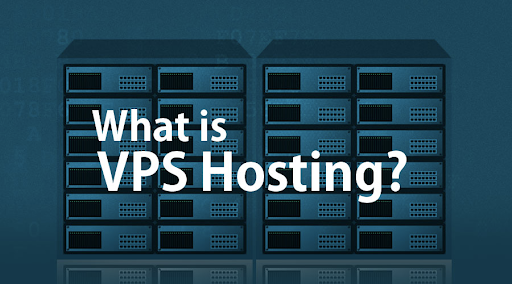Introduction: –
VPS has become an attractive hosting alternative for small to medium-sized organizations in the current environment. It is the most popular option for bridging the gap between shared hosting limits and the flexibility of dedicated server hosting.
A virtual private server (VPS) is a virtualized server that divides a single physical server into numerous servers. Each virtual server is self-contained and functions as a network server in its own right. A virtual private server (VPS) replicates a dedicated server within a shared hosting environment. VPS hosting is well-known and recognized online since it offers similar hosting quality to that of a dedicated server at a lower cost than shared hosting.
An Introduction to VPS
A virtual private server (VPS) is a standalone system on a physical server. An Internet hosting provider promotes it as a low-cost solution. Depending on the actual server’s characteristics, many VPS can be built on a single physical server. The virtual private server has its IP address and is powered by its operating system. Customers get immediate root access to the virtual machine, allowing them to install any compatible program with that operating system. VPS hosting is a powerful option to host a website on a server that offers increased security, power, and stability. VPS is a virtual private server between standard shared hosting and the more expensive dedicated server. It provides the best of both worlds: affordability and efficiency.
Uses of VPS hosting: –
VPS hosting is primarily used by small and medium organizations with high-volume traffic or heavy-data websites. A virtual private server (VPS) allows for faster loading times and nearly 100% website uptime.
VPS hosting is a good choice for young businesses since it offers the features of a dedicated server at a lower cost. Web hosting in India is very popular with the increasing rise in users on the Internet.
Following are the seven reasons: –
- Low Cost of Ownership –
The emergence of the Internet has relieved small and medium businesses of the burden of managing and owning their servers. You may adequately attend to the server needs by renting the hosting server needs from a reputable VPS service provider. Renting a VPS lets you get the most out of your server because you only rent what you need. A VPS is almost similar to owning a server, except for the upfront fees of a physical server. You won’t have to bother about server upkeep or paying for support and management. Therefore, it has a very low-price costing
2.Complete Control –
One of the advantages of a Virtual Private Server is that you have complete control over it. It would help to share your server with hundreds of others in a shared hosting environment. Any malicious application from any of these parties has the potential to bring the entire system to a halt. However, if you use the finest VPS server hosting provider, you can use the server to run whatever application you want.
- Performing Independently –
Other users sharing the same physical server have the most negligible impact on VPS performance. The Virtual Private Server is unaffected by other VPS clients in terms of storage, memory, bandwidth, or CPU because the web hosting company will designate particular resources solely for VPS.
- Portability –
The main disadvantage of having physical servers is application portability, and the quickness of users can move their applications to another server. The portability of applications is a benefit of VPS. VPS accounts are maintained or handled by the service provider as server images. If you decide to downgrade or upgrade the server, the web hosting company can migrate the image to the new server without delay.
2.Security –
When it comes to online, most organizations’ most common fear is security. Enterprises face the primary issue when considering outsourcing their server requirements to a third party. The inexpensive Virtual Private Hosting provider permits data files and sources to be stored in a secured location that cannot be accessible to the hosting company’s clients. Except for the expenditure, the security provided by a Virtual Private Server is similar to owning a dedicated physical server.
3.It adds the New Servers on Demand –
As small businesses learn about the benefits of eCommerce, they face the prospect of volatility and uncertainty. Online and offline, growth photos are a typical occurrence. The advantage of online business is the possibility of starting a new firm immediately. VPS is developed precisely for the environment, and you can add VPS as needed. You can put them down after a while if they are no longer required. Only add the appropriate amount of Virtual Private Server overhead when you have revenue from backing it up.
4.It scales IT in tandem with the website–
The majority of enterprises are cyclical. When you own a physical server, you must establish your growth before the server is delivered to you. With a Virtual Private Server, you may start a modest business that you can easily afford and develop as your company grows. Another advantage of elasticity is the option to downsize the VPS, which is useful when most enterprises are experiencing a slump.
Conclusion: –
Opting in or switching to VPS Hosting is a massive move for any internet business owner. The most important thing to remember about VPS Hosting is that the value and cost of having the power of a dedicated server are unrivaled. Consider what your website will require in the long term and compare it to the benefits listed here; we assure VPS will meet all of your demands.

